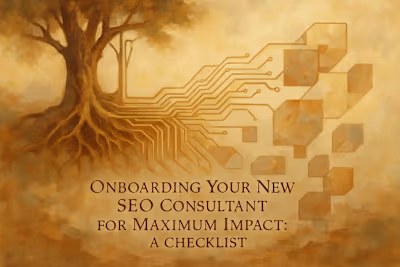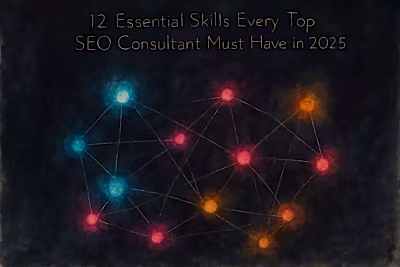7 Red Flags to Watch For When Hiring an SEO Consultant

7 Red Flags to Watch For When Hiring an SEO Consultant
Red Flag 1: Guarantees of #1 Rankings
Why It's an Unrealistic Promise
What a Reputable Consultant Will Promise
Red Flag 2: Lack of Transparency in Methods
The 'Secret Sauce' or 'Proprietary Method' Excuse
The Importance of Clear Communication
Red Flag 3: A Focus on Low-Quality or Spammy Backlinks
Signs of a Bad Link Building Strategy
What a Good Link Building Strategy Looks Like
Red Flag 4: Unrealistic Timelines and Promises of Quick Results
Why SEO Takes Time
Managing Timeline Expectations
Red Flag 5: No Access to Analytics or Reporting
Data is Essential for Strategy
The Hallmarks of Poor Reporting
Red Flag 6: A 'One-Size-Fits-All' Approach
Why Customization is Key
What to Look for Instead
Red Flag 7: Lack of References or Verifiable Case Studies
The Confidentiality Excuse
How to Vet Their Portfolio
Conclusion
References
7 Red Flags to Watch For When Hiring an SEO Consultant
Red Flag 1: Guarantees of #1 Rankings
Why It's an Unrealistic Promise
What a Reputable Consultant Will Promise
Red Flag 2: Lack of Transparency in Methods
The 'Secret Sauce' or 'Proprietary Method' Excuse
The Importance of Clear Communication
Red Flag 3: A Focus on Low-Quality or Spammy Backlinks
Signs of a Bad Link Building Strategy
What a Good Link Building Strategy Looks Like
Red Flag 4: Unrealistic Timelines and Promises of Quick Results
Why SEO Takes Time
Managing Timeline Expectations
Red Flag 5: No Access to Analytics or Reporting
Data is Essential for Strategy
The Hallmarks of Poor Reporting
Red Flag 6: A 'One-Size-Fits-All' Approach
Why Customization is Key
What to Look for Instead
Red Flag 7: Lack of References or Verifiable Case Studies
The Confidentiality Excuse
How to Vet Their Portfolio
Conclusion
References
Posted Jun 15, 2025
Avoid hiring the wrong SEO consultant. Learn to spot the 7 major red flags, from guaranteed rankings to a lack of transparency, before you make a costly mistake.









